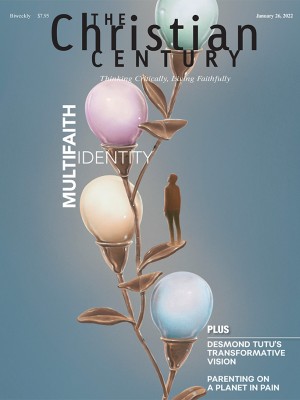Christians divided on California’s ‘abortion sanctuary’ plans

As California aims to become a sanctuary for out-of-state patients seeking abortions, Kathleen Domingo, executive director of the California Catholic Conference, is calling on Catholics to recognize this as “our moment.”
“We’re in a position here in California where we really have a fight on our hands,” Domingo told Currents News, a Catholic news TV show, on December 20, 2021.
“This is just the time for our Catholic community to do more of what we’ve always done and to be very intentional about the fact that we are helping people,” Domingo said in an interview. “We are equipped to be able to do that.”
Expecting a rush of pregnant people seeking abortions to flood into California if the US Supreme Court overturns Roe v. Wade, the California Future of Abortion Council, which consists of more than 40 abortion providers and advocacy groups, released a report in early December that includes 45 recommendations for the state to, as Gov. Gavin Newsom said, “support that inevitability.”
“We’ll be a sanctuary,” Newsom said.
The report recommends funding—including public spending—for travel, lodging, and child-care expenses for those seeking abortion in the state, as well as for reimbursing abortion providers for services to those who can’t afford to pay.
Advocates want to expand the number of abortion providers with the proposed California Reproductive Scholarships Corps, which would be open to those training as physicians or nurse practitioners in underserved areas in the state. They also want to require primary care and family medicine education programs to provide training in abortion care.
Read our latest issue or browse back issues.
The report also seeks to assess gaps in abortion access in areas of the state primarily served by religiously affiliated hospitals and health systems, stating that patients “must be able to access a full spectrum of health care,” including abortion, contraception, and gender-affirming care, that “they need and deserve regardless of where they receive their care.”
While some Christian leaders and organizations are condemning the list of recommendations, others—including out-of-state faith leaders—are applauding California’s abortion sanctuary plans.
To Amelia Fulbright, who pastors the Congregational Church of Austin, Texas, hearing about California’s plans to make it easier for out-of-state people to access abortion care brought a sense of relief.
“Anything that can be done to make it easier for pregnant people to access abortion care when they need it is welcome at this point,” said Fulbright.
Fulbright is among a number of faith leaders advocating for reproductive health-care access in Texas, where a new law allows anyone to sue those who help a pregnant person get an abortion after six weeks of pregnancy.
“In Texas, we have a state abortion fund and we have clergy who are helping people get to nearby states where they can get abortion care, but we’re hearing that nearby states are already feeling strained by the extra patients coming from Texas,” added Fulbright.
Fulbright believes it’s crucial that people of faith reclaim the public discourse around reproductive health from what she sees as “the grip of patriarchal religion and politics.”
But to Domingo, the abortion council’s recommendations are “disappointing and deceptive.”
Soon after the California Future of Abortion Council released its report, Domingo issued a lengthy statement on behalf of the California Catholic Conference, highlighting how “most egregiously, the report calls for violating conscience protection for medical students by forcing them to be trained in abortion procedures.
“And, it seeks to force Catholic health care to either offer abortions or go out of business, particularly in remote regions where Catholic hospitals provide services for some of the most underserved people in the state,” the statement continued.
Jonathan Keller, president and CEO of the antiabortion California Family Council, told the Associated Press that about half of the state’s 160 pregnancy resource centers are medical clinics, while the rest are faith-based counseling centers. He said many of these centers are already planning on increasing their staffing if California gets an influx of patients.
In December, the group held a webinar to stop what it described as “Newsom’s ‘abortion sanctuary’ scheme.” Panelists condemned the report, calling it “abortion tourism” and referring to those who are part of the California Future of Abortion Council as “extremist groups.”
Allison Martinez, executive director for the California Alliance of Pregnancy Care, participated in the panel and said pregnancy centers and clinics are “a valuable commodity in our communities” that offer same-day pregnancy tests and ultrasounds within the same week.
“Our hope is to unify the centers and clinics throughout our state so that we can have a voice in Sacramento,” Martinez said.
David Bereit, a Catholic antiabortion strategist, said during the panel that people should get involved by becoming “sidewalk advocates,” by beginning Students for Life chapters at their schools, and by participating in March for Life events.
Bereit said that, while ending abortion might seem impossible, “with God, all things are possible, so we need to pray.” —Religion News Service






